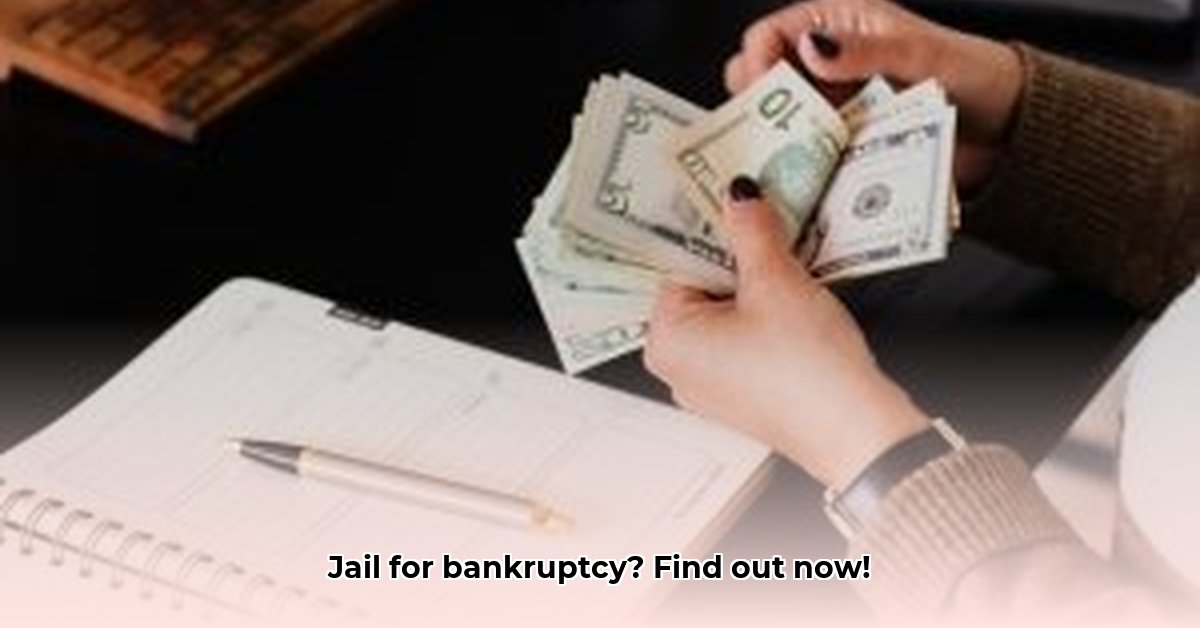
Facing financial hardship and considering bankruptcy? Understanding the legal landscape is crucial. While bankruptcy itself isn't a crime, fraudulent actions during the process can lead to severe consequences, including jail time. For more information on potential jail time, see this helpful resource: Jail Time Concerns?. This article clarifies what constitutes bankruptcy fraud, outlines potential penalties, and, most importantly, provides a practical guide to protect yourself.
What Constitutes Bankruptcy Fraud?
Bankruptcy fraud isn't about owing money; it's about intentionally misleading the court and creditors. It's a federal crime, specifically outlined under 18 U.S. Code § 152. Key elements include:
Asset Concealment: Hiding assets (money, property, etc.) to avoid debt repayment. This could involve transferring assets to others before filing or using offshore accounts.
False Statements: Providing inaccurate information on bankruptcy forms—underreporting income, exaggerating debts, or omitting crucial financial details. The court relies on accurate information for fair decision-making.
Repeated Fraudulent Filings: Repeatedly filing for bankruptcy with false information demonstrates a pattern of deception and significantly increases the risk of severe penalties.
Penalties for Bankruptcy Fraud: The Consequences of Deception
A conviction for bankruptcy fraud carries severe penalties:
Imprisonment: You could face years in prison, depending on the severity and the judge's ruling. This is not a minor offense; it’s a federal crime.
Significant Fines: In addition to jail time, you’ll likely face substantial financial penalties, potentially reaching hundreds of thousands of dollars. These fines can further worsen your existing financial situation.
The severity of the punishment directly correlates to the extent of the fraud.
Unintentional Errors vs. Deliberate Deception: A Crucial Distinction
It's vital to differentiate between innocent mistakes and intentional deception. Forgetting a minor item on your paperwork is vastly different from concealing major assets. The key factor is intent. Were you attempting to mislead the court, or was it an honest oversight? If you make an honest mistake, immediately correct it and cooperate fully with authorities. Transparency and prompt action demonstrate good faith and can mitigate penalties.
Is it a crime to be financially illiterate? No, but it is vital to seek expert help.
Protecting Yourself: A Step-by-Step Action Plan
To avoid accusations of bankruptcy fraud, follow these steps:
Seek Professional Legal Counsel: Consult a qualified bankruptcy attorney. They'll guide you through the process, ensure accurate filings, and protect your rights. This is not a DIY project.
Meticulous Record-Keeping: Maintain comprehensive and meticulously organized financial records. Keep copies of every bank statement, receipt, tax document, and all other relevant financial information. Employ reliable storage methods (cloud storage with appropriate security measures) to provide a strong basis for defending yourself against allegations of misrepresentation.
Understand Your Legal Obligations: Familiarize yourself with the applicable bankruptcy laws in your jurisdiction. Knowing what information must be disclosed is crucial to avoid unintentional errors.
Ensure Accurate Filings: Carefully review all paperwork with your attorney before submission. Accuracy is paramount; even minor errors can result in legal complications.
Key Takeaways: Protecting Your Future
Remember, bankruptcy itself is a legal process intended to provide financial relief. However, fraudulent actions during this process are serious crimes with potentially devastating consequences. By taking proactive steps—seeking legal help, maintaining accurate records, understanding your legal obligations, and ensuring precise filings—you can navigate bankruptcy responsibly and ethically, securing your future and avoiding serious legal problems.